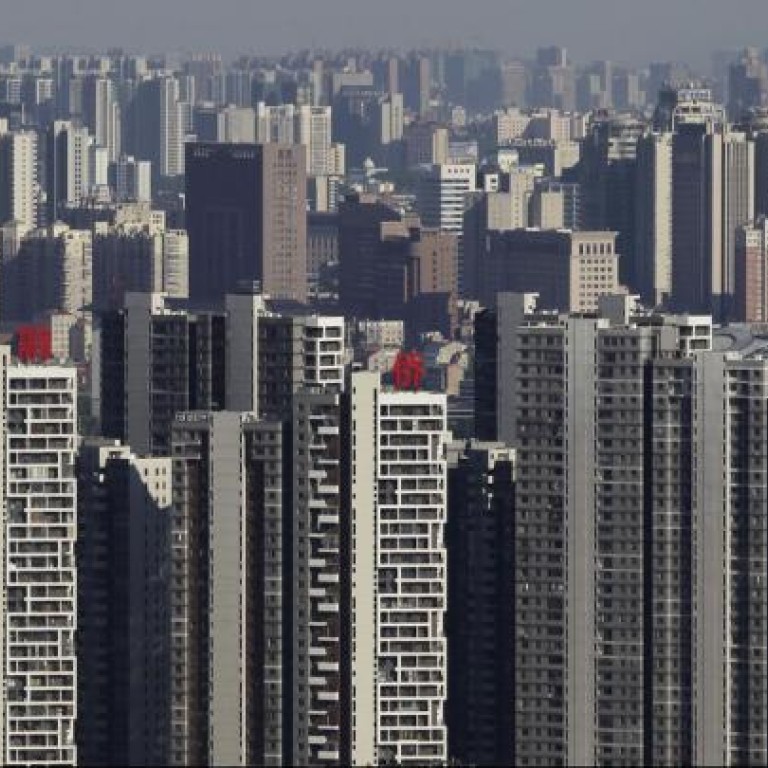
Both good and bad news in China's property rebound
While the recovery in real-estate investment will benefit the world at large, it may only serve to stave off the market slump for the time being
Last week China Vanke, the country's biggest residential property developer, announced that home sales last month leapt an impressive 140 per cent compared with December 2011.
As a result, its overall sales for last year amounted to 140 billion yuan (HK$172.88 billion), up 16 per cent from the year before. This surge in activity follows the news that home prices rose in the majority of big cities in November (see the first chart).
This rebound has triggered a revival in construction that saw residential property investment jump 22 per cent in November from a year earlier, up from a growth rate of just 5 per cent in July (see the second chart).
To the vast majority of watchers, this rebound in property investment is unambiguously positive.
Investment in real estate makes up a quarter of all the mainland's investment in fixed assets. So with fixed-asset investment contributing almost half of the country's gross domestic product, property investment accounts for more than 10 per cent of the total economy.
That means any pick-up or slowdown in real-estate investment has a big effect, not just on Chinese growth rates, but on the health of the broader global economy.
Any downturn in property investment means slacker demand for construction materials and equipment. In turn, that means a softening in manufacturing activity, which hits the mining industry, leading to weaker commodity prices.
It's not just industrial goods that are affected. Weaker investment hits the demand for real estate and financial services, and costs jobs, which in turn hurts consumer demand.
The impact is significant. According to an International Monetary Fund working paper published in November, a 50 per cent fall in the of property investment for just a few months would knock 1.5 percentage points off China's investment in heavy industry.
That would lower overall investment by almost a percentage point even six months after the property sector had recovered, and hurt exports.
As a result, the IMF's researchers estimate that a 1 per cent decline in property investment would shave 0.1 per cent off China's real GDP. Scale that up to the sort of decline seen last year, and you have a major slowdown in the economy's overall growth rate.
The effects aren't confined to China. The softening in its demand for capital goods would have a similar impact on the economies of Japan, South Korea and Germany, while world metal prices would fall by nearly 3 per cent, hammering commodity producers.
As a result, the current recovery in Chinese property investment looks like good news for the world at large.
But not everyone is applauding the rebound. "This is not a welcome shift," warn Mark Williams and Wang Qinwei at independent research house Capital Economics. They argue that China is already at risk of over-investing in property, pointing out that at the height of America's real-estate bubble, investment in the sector only reached 6 per cent of GDP.
By that standard, China is now well into dangerous territory. Williams and Wang estimate there is demand in China for about 10 million new homes a year. Despite last year's slowdown, they reckon almost 11 million new properties were completed in 2011.
Considering the amount of construction that was put on hold during the slump, they believe the current investment recovery could push the number of new homes completed this year up to 17 million.
"That is far more than the market can realistically support without a big drop in prices," they warn.
So although the recovery in Chinese property investment has been greeted as good news for the economy both at home and abroad, it may turn out to be nothing more than a temporary reprieve from the big market slump that is still approaching.

